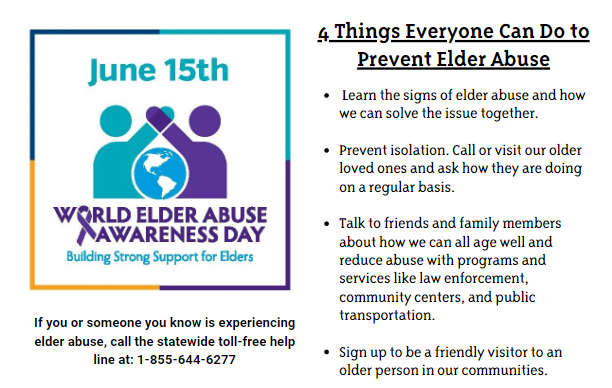
Dementia, Alzheimer’s & Memory Loss

With age, a person may experience changes in behavior—such as changes in personality, ability to communicate, judgment, and memory loss.
Alzheimer’s disease (AD) is one type of dementia that involves permanent changes in the brain. The person typically experiences a gradual decline. It is estimated 6.7 million Americans have Alzheimer’s and two million have other forms of dementia. AD typically occurs in older adults. However, it may occur before age 65, in which case it is called “early onset.” When it occurs in younger adults, the progression of the disease is often faster. The fact that it can sometimes occur in a younger adult makes it clear that AD is a disease, and not a necessary consequence of aging.
However, not all people who show signs of memory loss and confusion are suffering from dementia. Rather, their symptoms may stem from depression, stress, the side effects of several medications, strokes, epilepsy, infections or other conditions—some of which may be easily treated.
A senior who is exhibiting signs of memory loss and changes in their behavior should have a full geriatric assessment to determine the cause of the confusion. At this time, the most effective treatment for Alzheimer’s disease—more effective than any drug—is having a competent and kind caregiver. A caregiver who understands the illness, knows how to communicate with the person, creates a warm, safe home and offers interesting activities with love and encouragement. Call the local Area Agency on Aging or the Eldercare Locator at 1-800-677-1116 for assistance in finding a memory loss clinic.
Understanding Dementia
Try to understand the person by placing yourself in his shoes. He or she may be experiencing frustrations from
- trying to communicate
- difficulty with simple tasks, like dressing
- loss of independence
- changes in mobility
- awareness of their memory loss therefore, fear and embarrassment
People with AD may become scared because they don’t understand what is happening to them. When caring for a confused person, it is very important to view the situation from that person’s perspective and to be aware of the terror that he or she may be feeling.
It’s Also Not Easy for You as Caregiver
You can feel frustrations from the person’s:
- inability to follow instructions and perform daily tasks, which slows the pace of your day
- constant repetition of the same phrases or stories
- rage, withdrawal, or use of profanity
- demands to do things (like driving) that are no longer safe
Also, it is natural for you to have feelings of inadequacy in dealing with the caregiving challenge. Family caregivers are heartbroken to be losing the love and friendship of the person you knew.
Tips for Maintaining a Calm Atmosphere

Sometimes it is hard to know why a person is refusing to do something when you ask them repeatedly. If they are experiencing memory loss, they may be having trouble understanding what you are saying. Sometimes, even simple instructions need to be repeated again and again. Perhaps you are giving too many instructions at one time. Consider asking the person to do one thing, one step at a time and praise the accomplishment of each step. Keep yourself calm and reassuring and use simple language and hand gestures to point and demonstrate what you want. Also, to avoid conflicts, remove potentially distracting temptations such as car keys, medications, alcohol, or dangerous objects.
Accept the person’s version of a situation. NEVER ARGUE.
For an important treatment say, “This is for your protection,” and proceed with what needs to be done. If the person expresses an unrealistic desire, avoid challenging and use positive statements such as “Let’s stay inside” instead of “Don’t go outside.” Remember, use humor to get through the day!
Enjoying the Simple Things
Familiar activities can provide comfort for all of us. Simple tasks such as folding laundry, gardening, molding clay and sorting mail can be relaxing and rewarding activities for a person with dementia. Keep photos of loved ones on a bulletin board, the refrigerator, or framed around the house. Label them with names if the person in your care suffers from memory loss. The pictures will boost both of your spirits!
Memory Care-Gardening Pleasures
Everyone loves a garden, but people with Alzheimer’s disease can especially benefit from time in a garden. Grow herbs such as mint, rosemary and lavender, which will delight and stimulate memories. Find a way the senior can work with the soil and trim plants. Even a small patio with pots can provide entertainment and pleasure.
Taking Care of Yourself: Self-Care Techniques
You are the engine that will keep things going over the long haul, so take care of yourself by using simple techniques:
- Take brief daytime “power naps” using an eye cover to block out light and get better rest.
- Keep a “little black book” of outreach numbers handy—friends you can call when you are having a hard time.
- Make a meal and snack plan for yourself so you eat properly regardless how busy you are. Have nutritious snacks such as fruit, nuts, veggies, and crackers and cheese handy.
Helping someone with dementia can be physically, mentally and emotionally draining. Be aware of the strain you may be experiencing. Counter strains with supportive and engaging activities in your own life.
Safety Tips- Making the Home Safer
Small changes can make a big difference. Here are some simple steps to make home comfortable for you and the person in your care.
- Turn on nightlights and have all areas well lit.
- Simplify the wardrobe and have an easy-to-follow routine for dressing each day.
- Block off access to some rooms.
- Lock up alcohol and medications.
- Keep the home as clean and clutter free as possible.
- Post important family, friends and emergency numbers in large text next to all phones and on refrigerator.
- A shut-off mechanism and a mechanism to control water temperature in sink, tub, and shower will prevent accidental flooding and burns.
- Put screens over open drains.
- Store car keys in a locked container; ask a mechanic to disable the car so you can still use it, but the person with AD cannot.


